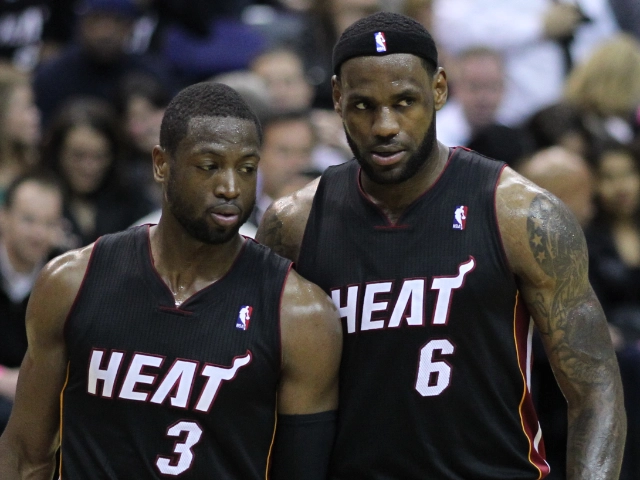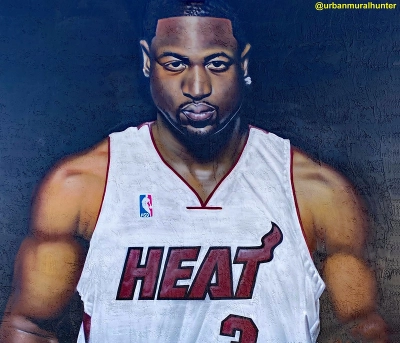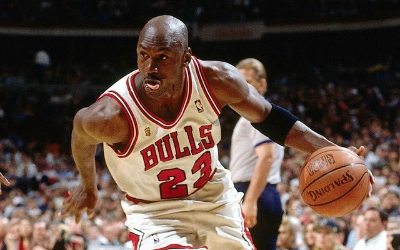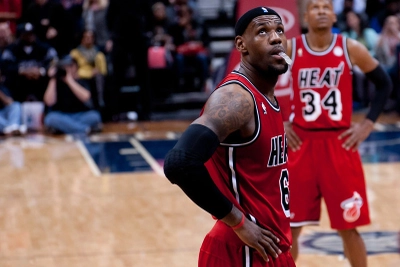
It’s that time of year again…the NBA Playoffs! While the regular season can sometimes seem to drag on a bit, there’s nothing but excitement, drama, and high stakes in the playoffs. There have been so many memorable playoff performances that will be remembered forever. This is especially true when it comes to NBA finals. I’ve always had a fascination to determine which NBA players had the greatest performances on the game’s biggest stage. That is why I will be looking at the 10 greatest single game performances in NBA finals history.
Rules
For this ranking specifically, a performance is eligible to be on this list if it happened in the 1984-1985 (1985 finals) finals or later. I decided to make this my cutoff date because this is very soon after what many people would say is the beginning of the “modern” era of the NBA. I also chose it because it is post merger (of the NBA and ABA), and it is after the 1979-1980 season, which is the season that three point shots started being counted in the NBA. This is a pretty important factor for me because three-point shots have become so integral to the game over the last decade. However, two of the most important reasons why I chose this cutoff date is because that is the earliest date where I can incorporate two very important advanced metrics; Game Score and Box Plus/Minus (BPM)
Assessment
There has been lots of development in recent years of advanced basketball metrics. However, the main problem with many of these metrics, and the sites that provide them is that they typically cover an entire season, or a certain portion of the season. Advanced metrics on only single game performances are much harder to find. Luckily a metric has been developed that was specifically designed for measuring single game performance of NBA players. It is called “Game Score.” It’s a very fascinating metric that is able to balance totals and efficiency effectively. Another advanced NBA metric that has gained a lot of popularity is player efficiency rating (PER). Like most other advanced NBA statistics, PER is primarily used to measure a player’s performance over a certain period of time, rather than just a single game. The reason that I mention PER is because of how it relates to game score; “Game Score is a player evaluation metric which can be considered John Hollinger’s simple and linear version of the Player Efficiency Rating.”(Game) Here is the formula for game score: Game Score =(Points)+0.4*(Field Goals Made)+0.7*(Offensive Rebounds)+0.3*(Defensive rebounds)+(Steals)+0.7*(Assists)+0.7*(Blocked Shots)- 0.7*(Field Goal Attempts)-0.4*(Free Throws Missed) – 0.4*(Personal Fouls)-(Turnovers). I will also be looking at many of these traditional metrics individually, in addition to the overall game score. The reason is because, for example, some players could end up having more overall rebounds than assists (which is very common since rebound totals usually exceed assist totals), and rebounds are given a higher overall weight in the calculation of this formula: offensive and defensive rebounds combined are given a weight of 1, while assists are given an overall weight of 0.7. I’m looking at traditional statistics separately because game score doesn’t take things like double doubles/triple doubles into consideration. I will also look at single game box plus/minus (BPM), which looks at a player’s contributions and quality to a team from a play-by-play regression; “BPM takes box score stats from an individual and team level and tries to estimate player performance relative to the NBA average. Since BPM is a per-100-possession stat where 0.0 is league average, +5 means the player is 5 points better than an average player over 100 possessions (which is about All-NBA level), -2 is replacement level, and -5 is really bad.”(Box) BPM is very well known in the world of basketball, and is worth including since single game BPM is available to evaluate. It is worth noting that BPM can sometimes be skewed by high quality play in a small amount of minutes. BPM tends to favor efficiency (less missed shots/turnover/fouls), and game score tends to favor higher total stats. Finally, I will take into consideration the context of the game and the series as a whole. This type of evaluation can’t really be quantified, so it will be up to me to try and balance the statistical performances, and what that performance actually meant in the context of the game and the series as a whole.
Game Score/BPM Standards
The best game scores of all time are in the high 50s and low 60s. Since this is just considering finals performances, that limits the pool of performances compared to what it would normally be in the regular season. The highest game scores put up by a player in finals history is in the low 40s(around 41-42). A game score of 40 or above has only been achieved 6 times in finals history(some of them might make this list). Since I’m trying to balance context/clutchness with advanced analytics and traditional stats, the performances on this list will likely range anywhere from the 20s-40s. As far as BPM, this won’t be given quite as much weight in my mind, due to it being very volatile and heavily impacted by missed shots. That being said, most of the performances heavily considered for this list are around 10-20 BPM.
Honorable Mention
I’d like to give an honorable mention to Lebron James’ performance in game five of the 2016 Finals. A key reason why this isn’t included is because The Cavaliers were already up by nine going into the 4th quarter, and Lebron only managed to put up five points on poor shooting in that final quarter. Another reason is because both Lebron James and Kyrie Irving finished with 41 points for the night. While this doesn’t necessarily take away from Lebron’s total, it’s not like the Cavaliers didn’t have any other major star power on full blast that night. Kyrie also managed to have an extremely impressive 4th quarter by putting up 12 points on much more efficient shooting than Lebron. But don’t worry, that certainly isn’t the last we’ve seen of the King…On with number 10:
#10: 2013 Game 7: Lebron James (Game Score: 32.5, BPM: 20.6, 37 PTS, 12 RB, 4 AST, 2 STL)
The Heat needed everything from the King to take care of the Spurs for their 2nd NBA championship in a row. This performance checks all the boxes; having great traditional stats, fantastic advanced metrics, and being in an extremely clutch situation: game 7 of the NBA finals! The reason why this isn’t higher on the list is because the Heat were up 1 going into the 4th quarter. While that’s not a lot, and Lebron had a great 4th quarter to boot, many of the performances ahead of this had the players of these teams down in the game headed into the 4th quarter. Lebron also only had four assists this game. This isn’t bad, especially taking into account his other fantastic numbers, but it’s worth noting as to why it’s number 10. Either way, this was a great way for Lebron to close out the series against the Spurs for his 2nd career championship.
#9: 1988 Game 7: James Worthy (Game Score: 35.0, BPM: 14.9, 36 PTS, 16 RB, 10 AST, 2 STL)
What makes this performance so unique is that in the hall of fame career of James Worthy, in addition to it being the most iconic, it’s also his best statistical performance of all time. Almost every other NBA great has had their best statistical single game performance in a regular season game, even if it’s not their most iconic. James Worthy had his best statistical performance in game seven of the finals! Similar to the previous Lebron performance, it was extremely efficient in terms of advanced metrics, tallied great traditional totals, and hit the clutch factor by being in game seven of the finals to lead the Lakers to another championship.The main reason it’s not higher is because the Lakers were up 10 going into the 4th, so a lack of a 4th quarter comeback hurts this performance in comparison to the others. In the last game of the season, you're supposed to put everything on the line and give it your very best. It is clear that James Worthy took this quite literally.
#8: 1997 Game 6: Michael Jordan (Game Score: 26.1, BPM: 15.7, 39 PTS, 11 RB, 4 AST, 1 STL, 1 BLK)
Up 3-2 in the series over the formidable Utah Jazz, Michael Jordan set out to avoid playing game seven. He did just that, but not without some late game theatrics. Going into the 4th quarter, it wasn’t looking very promising for the Bulls, as they were down by six points. Jordan led the Bulls to a miraculous comeback by scoring 10 points in the 4th quarter to clinch the championship. In terms of clutchness, this performance meets that criteria and then some. The reason this performance is at number eight is because in both advanced and traditional metrics, it’s not quite as impressive as some of the others. Also, his four assists leave more to be desired. MJ’s 4th quarter was great, but many of the performances ahead of this have better final quarter offerings. No matter what, this was one for the ages.
#7: 2006 Game 3: Dwyane Wade (Game Score: 32.5, BPM: 16.2, 42 PTS, 13 RB, 2 AST, 2 STL)

"Dwayne Wade" by Atelier Teee is licensed under CC BY-NC-ND 2.0.
A bunch of washed up NBA legends led by an inexperienced up and coming superstar vs the 60 win Mavericks led by Dirk Nowitzki and Jason Terry in the prime of their careers, needless to say the Mavericks were heavily favored to win this series. All was going according to plan, as the Mavericks led the series 2-0. Headed into the 4th quarter of game three, the Mavericks were up by nine points. On the verge of going down 3-0 in the series, Dwyane Wade went from a 24 year old up and coming superstar to a future hall of fame player. Wade proceeded to go off for 15 points in the final quarter to come back and beat the Mavericks. This performance helped change the outlook of the entire series. Instead of being down 3-0 and almost guaranteed to lose, it was now 2-1, and the series was up for grabs. The reason it ranks ahead of the previous performance from Jordan is because of the greater odds stacked against Dwyane Wade and the Heat, as well as slightly better advanced metrics. Wade put together one of the greatest 4th quarter scoring displays in finals history. This 42 point double double helped shift the momentum of the entire series in favor of the Heat. Starting with this game, the Heat won four straight games after being down 2-0 to win the championship.
#6: 1998 Game 6: Michael Jordan (Game Score: 28.5, BPM: 11.5, 45 PTS, 1 RB, 1 AST, 4 STL)

In what should have been the final game of his career, Michael Jordan did not disappoint. Jordan and the Bulls were in an almost identical situation as the previous year; up 3-2 in the series against the Jazz, looking to avoid a game seven, and down by five points going into the 4th quarter. Michael Jordan once again prevailed, this time scoring a monstrous 16 points in the 4th quarter, including one of the most iconic shots in NBA history. This performance helped clinch his 6th and final championship. This is one of the most prolific displays of pure scoring ability in a finals game. What holds this one up is the context of the series, the game, and Jordan’s career, as well as the 45 points and four steals. What holds this one back from ranking higher is the one rebound and one assist, which is extremely miniscule. That being said, the great far outweighs the subpar here, which is why it’s on the list.
#5: 2016 Game 6: Lebron James (Game Score: 42.5, BPM: 23.5, 41 PTS, 8 RB, 11 AST, 4 STL, 3 BLK)
After winning game 5 and cutting the series deficit to 3-2, Lebron put up video game numbers against the 73 win Warriors to force a game seven. This is the highest game score a player has ever achieved in an NBA finals game: 42.5. It also couldn’t have come at a better time; being down in the series 3-2 against possibly the greatest team in NBA history. His efficiency was off the charts, which can be seen by his monstrous 23.5 BPM. He truly did it all; almost had a 40 point triple double accompanied by four steals and three blocks. According to game score, this is the best single game finals performance ever. It was also extremely clutch, as it helped force a game seven against the 73-9 Warriors. Just one thing holds this one back; The Cavaliers were already up by nine going into the 4th quarter. Lebron did score 17 points in the 4th quarter, but a sizable lead heading into the 4th quarter is what barely keeps this performance behind the ones in ahead of it.
#4: 1997 Game 5: Michael Jordan (Game Score: 29.4, BPM: 16.2, 38 PTS, 7 RB, 5 AST, 3 STL, 1 BLK)
The infamous flu game, arguably the most iconic performance by a player in NBA history. When you factor in statistics, and the context of the series at hand, it’s also one of the greatest. The series against the Jazz was tied 2-2, however all the momentum was towards the Jazz, as they had won the last two games to tie the series. Similar to many of Jordan’s other performances, the Bulls were down by five heading into the 4th quarter. Jordan proceeded to drop 15 points on the Jazz en route to claiming the 3-2 series lead. This shifted the outcome of the series completely. What’s truly remarkable is that he did this while having the flu, which helped bump this performance up in the rankings. This game went on to define who he was as a competitor. The advanced metrics are solid, but not through the roof. All in all, this was an excellent, and very well balanced performance that was heightened by the context of the series, and MJ’s health being compromised.
#3: 2013 Game 6: Lebron James (Game Score: 25.8, BPM: 9.2, 32 PTS, 10 RB, 11 AST, 3 STL, 1 BLK)

Everyone remembers this game for Ray Allen tying the game with seconds left with a three to send it to overtime. Lebron James was the driving force of what got them back into this game in the first place. The Heat were down 3-2 in the series against the Spurs. They were also down 10 points going into the 4th. Despite how bleak things looked, Lebron helped the Heat roar back and tie the game with 16 points in the 4th quarter. In overtime, he added another two point field goal and two assists. This was enough to tie the series at 3-3 and force a game seven, where the Heat would win their 2nd championship in a row. Even though the advanced metrics/efficiency are a bit down for this one(compared to the others), the traditional box score stats still look great, and what it did for the series was monumental. A 30 point triple double to come back from being down 10 points going into the 4th quarter, and force a game seven is one of the greatest achievements of Lebron’s career.
#2: 2021 Game 6: Giannis Antetokounmpo (Game Score: 42.0, BPM: 18.9, 50 PTS, 14 RB, 2 AST, 5 BLK)

In the championship clinching game, Giannis recorded the 2nd highest game score of any finals performance: 42.0(behind the #5 performance on this list). The game was also tied heading into the 4th, and Giannis scored 13 that quarter to go with two blocks. Since 1970, Giannis became only the 3rd player to score 50 points in a finals game. There is literally nothing holding back this performance. Giannis dropped 50 points in a championship clinching game, blocked five shots, took over the 4th quarter in a tight game, had incredible traditional and advanced metrics, as well as excellent efficiency. How could this not be #1?
#1: 2016 Game 7: Lebron James (Game Score: 23.1, BPM: 11.2, 27 PTS, 11 RB, 11 AST, 2 STL, 3 BLK)

Obviously the advanced metrics/efficiency are slightly lower compared to some of the other performances on this list, but this performance had to be number one. This was the finale to Lebron leading the Cavaliers to arguably the greatest upset in sports history; coming back from being down 3-1 in the finals against the 73-9 Warriors. This remains to be the only time a team has come back from down 3-1 in an NBA finals series to win. The Cavaliers were down by one point heading into the 4th quarter, and Lebron led the comeback by scoring 11 points. He also executed what is widely regarded as the single greatest play in NBA history: “The Block.” A game seven triple double is amazing no matter how you cut it, but this performance takes the top spot because of the historical significance. A performance that capped off the greatest comeback, upset, and included the greatest play in NBA history has to be number one.
About the Author
Brady Goodman is a senior at Samford University. He is a part of the sports analytics program.
Email: bgoodman@samford.edu
Twitter: b_good_8
LinkedIn
References
